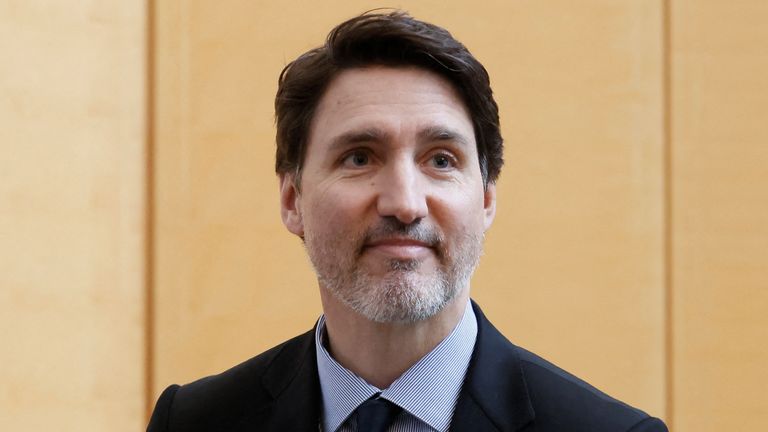With strong pressures within the Liberal Party and economic challenges on the horizon, Justin Trudeau announced that he will step down from his post. There will be a recess until the party selects its new leader and the country’s next prime minister.
Trudeau said he will step down «after the party elects its next leader,» noting that «Parliament has been paralyzed for months after what has been the longest session of a minority Parliament in Canadian history.» «It has become clear to me, because of the internal battles,That I cannot be the one to carry the liberal banner to the next elections»Trudeau said.
Finally, Trudeau said he asked Parliament to recess until March 26 to give the Liberal Party time to select a new leader, who will then take over as prime minister.
Freeland, tariffs and growing political weakness
The departure of Finance Minister Chrystia Freeland marked a turning point in the Liberal government. Her resignation not only highlighted internal fractures, but also triggered a wave of criticism of Trudeau for his leadership style. Since then, the prime minister has kept a low profile, even during the holidays, fueling speculation about his political future.
At the same time, the international context is aggravating the situation. Donald Trump , the president-elect of the United States , will take office in a matter of weeks and has already announced plans to impose 25% tariffs on all imports from Canada and Mexico . This measure, according to Trump, would be maintained until the entry of drugs and illegal immigration into the United States is controlled.

Trudeau responded to these threats by saying that tariffs would make life significantly more expensive for American consumers, but Trump hit back with sarcastic comments on his Truth Social platform, where he referred to the Canadian prime minister as «the governor of the Great State of Canada.»
In November, Trudeau and his advisers met with Trump at Mar-a-Lago , where they discussed trade issues. Although Trump called the meeting “very productive ,” tensions soon flared again. According to Fox News, Trump even jokingly suggested that Canada could become the 51st state of the United States if tariffs were to hurt the Canadian economy.
A Liberal Party in crisis and the rise of the Conservatives
Trudeau’s departure will open a period of uncertainty within the Liberal Party, which is already facing a sharp decline in the polls. A recent Ipsos poll shows a 25-point lead for the Conservatives, who have 45% support. In contrast, the Liberals, led by Trudeau until now, have just 20%. In addition, Conservative leader Pierre Poilievre is considered by 39% of Canadians to be the best equipped to handle relations with Trump, compared to only 14% who trust Trudeau.
The next federal election is scheduled for October 2025 , but pressure for a change in the Liberal leadership could alter the political timeline. If the resignation goes through, it would start an internal leadership fight at a critical time for the party and the country.

